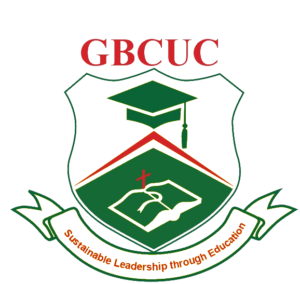
PROGRAM INFORMATION
TYPE: DIPLOMA
DURATION: 3 YEARS
ACCREDITATION: HEA, ZQF LEVEL 6
DIPLOMA IN SOCIAL STUDIES AND RE
The Diploma in Secondary Teaching Program, emphasizing Social Studies and Religious Education, addresses the need for educators who can provide students with a comprehensive understanding of society, culture, and ethical values. Social Studies fosters critical thinking about historical and contemporary social issues, while Religious Education encourages exploration of faith, morality, and diverse belief systems. This program prepares teachers to empower students to become informed, responsible citizens with a strong moral and ethical foundation.
Program Outline
| Year1 | |
| COURSE CODE | COURSE TITLE |
| HPE 41002 | History and Philosophy of Education |
| CSS 41003 | Communication and study skills |
| EPS 41004 | Education Psychology and Sociology of Education |
| ICT 41005 | Information Communication Technology |
| RED 41201 | Religious Education teaching methods I |
| RED 41204 | Religious Education II |
| SSE 41091 | Social Studies teaching methods I |
| SSE 41095 | Social Studies Education I |
| Year2 | |
| COURSE CODE | COURSE TITLE |
| CRE 42004 | Curriculum studies and assessment |
| ERP 42002 | Education Research |
| RED 42201 | Religious education teaching methods II |
| RED 42204 | Religious Education II |
| SGC 42001 | Special education, guidance and counselling |
| SSE 42091 | Social studies teaching methods I |
| SSE 42095 | Social studies Education II |
| STP 42003 | Teaching practice I |
| Year 3 | |
| COURSE CODE | COURSE TITLE |
| RED 43201 | Religious Education teaching methods III |
| RED 43204 | Religious Education III |
| SSE 43091 | Social Studies teaching methods III |
| SSE 43095 | Social studies education III |
| STP 43004 | Teaching Practice II |
| ELM 43002 | Education leadership and management |
| ERR 43003 | Education Research (Research report) |
| EED 43001 | Entrepreneurship Education |
Programme Aims and Objectives
Upon successful completion of the Diploma in Secondary Teaching Program with a focus on Social Studies and Religious Education, graduates should be able to:
Graduates will have a deep understanding of both Social Studies and Religious Education, encompassing historical, cultural, and ethical aspects.
Graduates will be proficient in designing and delivering engaging lessons in both Social Studies and Religious Education, catering to diverse learning styles and abilities.
Graduates will create curriculum materials and resources that align with educational standards, fostering a well-rounded education for their students.
Graduates will design various assessment methods for both subjects and adapt teaching strategies to meet the needs of diverse learners.
Graduates will employ effective classroom management techniques to maintain a positive and productive learning environment.
Graduates will promote inclusivity and respect for diverse cultural backgrounds in the context of both Social Studies and Religious Education.
Graduates will facilitate discussions on ethical and moral questions, encouraging students to think critically about values, ethics, and belief systems.
Graduates will foster an awareness of the historical and societal contexts that shape individuals’ beliefs and behaviors.
Graduates will integrate social studies concepts into the study of religious and philosophical topics, highlighting their interconnectedness.
Graduates will commit to continuous professional development, staying updated on advancements in Social Studies and Religious Education and refining their teaching practices.
Graduates will effectively communicate complex social studies and religious concepts to students and stakeholders, promoting meaningful dialogue and understanding.
Graduates will encourage students to explore their own beliefs, values, and the role of religion in society, fostering responsible citizenship and community involvement.
